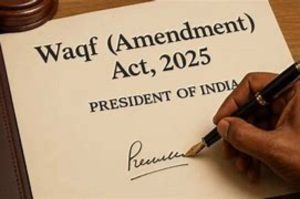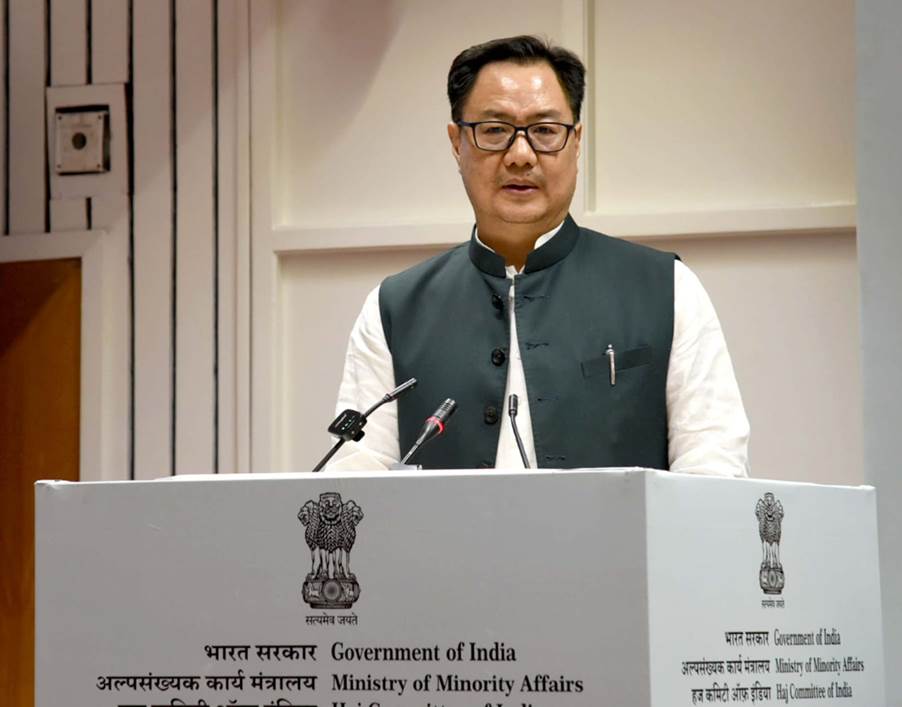New Delhi – The Supreme Court of India is poised to deliver interim orders on Monday, September 15, regarding three critical provisions of the Waqf Amendment Act 2025. The anticipated verdict comes after extensive legal challenges questioning the constitutional validity of the controversial legislation that has sparked nationwide debate over religious property rights and government oversight.
Chief Justice BR Gavai’s bench reserved interim orders on May 22 following three consecutive days of intensive arguments from both petitioners’ counsel and Solicitor General Tushar Mehta representing the Centre. The Waqf Amendment Act 2025 has become a focal point of legal scrutiny due to its sweeping changes to existing waqf property regulations.
Key Provisions Under Supreme Court Review

The Waqf Amendment Act 2025 faces constitutional challenges on three primary fronts that will be addressed in today’s interim order. The most contentious provision grants authorities the power to denotify properties previously declared as “waqf by courts, waqf by user, or waqf by deed,” fundamentally altering the established framework for waqf property recognition.
Petitioners have specifically challenged the scope of denotification powers under the Waqf Amendment Act 2025, arguing that such provisions undermine the traditional legal mechanisms that have governed waqf properties for decades. This denotification authority represents a significant shift in how waqf properties can be reclassified or removed from waqf status.
Composition of Waqf Boards Under Scrutiny


Another major challenge to the Waqf Amendment Act 2025 concerns the composition of state waqf boards and the Central Waqf Council. Petitioners contend that membership in these governing bodies should remain exclusively confined to Muslims, with exceptions only for ex-officio positions as per established tradition.
The amended legislation’s provisions regarding board composition have raised concerns about the religious character and autonomy of waqf administration. Critics argue that the Waqf Amendment Act 2025 may compromise the Islamic nature of waqf governance by potentially allowing non-Muslim participation in decision-making processes beyond ceremonial roles.
Government Land Provision Creates Legal Controversy
The third major challenge to the Waqf Amendment Act 2025 involves a clause that automatically strips waqf status from properties if a district collector determines through inquiry that the land belongs to the government. This provision has generated significant opposition from Muslim organizations and legal experts who view it as potentially discriminatory.
Under this controversial aspect of the Waqf Amendment Act 2025, waqf properties could lose their protected status based on administrative determinations rather than judicial processes. Petitioners argue this represents a fundamental departure from established legal principles governing property rights and religious endowments.
Also Read: Strategic Modi Bihar Purnea Visit To Launch Rs. 36,000 Crore Worth Projects
Centre’s Defense of the Legislation


The Union government has mounted a robust defense of the Waqf Amendment Act 2025, maintaining that waqf represents a “secular concept” and that the amended law enjoys a “presumption of constitutionality.” The Centre’s legal team has argued that while waqf has roots in Islamic tradition, it does not constitute an essential religious practice requiring absolute protection from legislative modification.
On April 25, the Union Ministry of Minority Affairs filed a comprehensive 1,332-page preliminary affidavit opposing any “blanket stay” on the Waqf Amendment Act 2025. This detailed submission outlines the government’s rationale for the amendments and addresses various constitutional challenges raised by petitioners.
Legal Arguments Against the Amendment
Senior advocate Kapil Sibal, representing the petitioners challenging the Waqf Amendment Act 2025, has argued that the legislation represents a “complete departure from historical legal and constitutional principles.” Sibal contends that the law is designed to “capture waqf through a non-judicial process,” undermining traditional protections for religious endowments.
The petitioners’ legal team has emphasized that the Waqf Amendment Act 2025 violates fundamental principles of religious freedom and property rights enshrined in the Constitution. They argue that the amendments fundamentally alter the character of waqf administration and property protection mechanisms.
Legislative Timeline and Presidential Assent
The Waqf Amendment Act 2025 was officially notified on April 8 after receiving Presidential assent from President Droupadi Murmu on April 5. The legislation had successfully cleared both houses of Parliament earlier in April, with the Lok Sabha passing it on April 3 and the Rajya Sabha approving it on April 4.
The swift parliamentary passage of the Waqf Amendment Act 2025 followed extensive debate and discussion in both chambers, with the government emphasizing the need for modernization and transparency in waqf administration while opposition parties raised concerns about religious autonomy.
Anticipated Impact of Supreme Court Decision
Today’s interim order on the Waqf Amendment Act 2025 will significantly influence the implementation and future of this controversial legislation. The Supreme Court’s decision may determine whether the challenged provisions can continue to operate or require modification before full implementation across the country.

